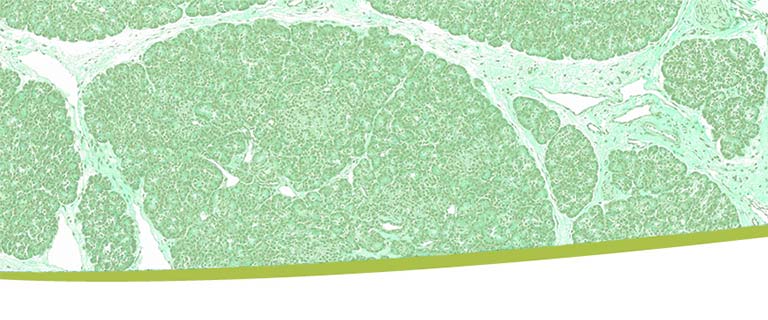For NEW nPOD Applicants
To apply to become an nPOD investigator and gain access to nPOD tissues:
Please note the nPOD MTA is non-negotiable, but is created to be very simple and non-restrictive by University of Florida legal counsel, and requires no signature on the provider side. The Project PI should sign as the Recipient Scientist, and someone with signing authority from the PI’s institution should sign as the Recipient. All diabetes researchers are welcome to apply and it is not necessary to have funding in order to receive samples.
nPOD New Investigator Application Review Process:
All new nPOD applications will be reviewed by nPOD’s Tissue Prioritization Committee, typically on a quarterly basis. When completing your application, please consider that some of nPOD’s precious tissue samples are a finite resource. Meritorious applications will be given access to samples in a prioritized fashion. Before filling out your application, please review the list of current nPOD projects. If your project may appear to duplicate work by an approved nPOD investigator, you are strongly encouraged to justify how your new study will provide additional insights above and beyond what will be gained from the ongoing project. For available sample types and typical distribution, please view more information on this table.
Approximately every two months, nPOD’s Tissue Prioritization Committee meets to review applications. Please make sure to submit your application three weeks before the date of the meeting.
2025 Deadlines
- Tuesday, February 4th
- Friday, March 28th
- Thursday, May 29th
- Thursday, August 7th
- Friday, September 26th
- Friday, November 28th
2025 TPC Meeting Date
- Tuesday, February 18th
- Friday, April 11th
- Thursday, June 12th
- Thursday, August 21st
- Friday, October 10th
- Friday, December 12th
The Tissue Prioritization Committee (TPC) reviews new investigator applications to determine the scientific merit and feasibility of using nPOD samples, as well as discusses changes to current investigators projects. The TPC also serves to mediate collaborations among current and new investigators. For more information about how the TPC operates, please view the TPC Guidelines.
The current members of the TPC are:
- Susan Bonner-Weir, PhD, Joslin Diabetes Center and Harvard University
- Remi Creusot, PhD, Columbia University
- Ivan Gerling, PhD, University of Tennessee
- Alberto Pugliese, MD, City of Hope
- Sarah Richardson, PhD, University of Exeter Medical School
- Rachel Friedman, PhD, University of Colorado Anschutz Medical Campus
- Rebecca Hull-Meichle, PhD, University of Alberta
- Megan Levings, PhD, University of British Columbia
- William Hagopian, PhD, University of Washington Diabetes Research Center
Availability of nPOD Cases for Assay Validation and Generation of Preliminary Data
nPOD has now several available cases that have been retired for distribution to research projects, but can be used for assay validation or generation of preliminary data. Reasonable amounts of materials can be requested. Please contact Helmut Hiller if you would like to order samples from these cases. These specimens are available to approved nPOD investigators and to investigators who do not yet have a project approved by nPOD. For example, such specimens could be used to validate an antibody stain in human pancreas, when the investigator has not yet examined human tissues. When requesting such tissues, please provide a short justification and specify quantities, again using the tissue request form is preferable.
Please note that we can only release specimens to investigators that provide a letter testifying IRB (Ethics approval) or exemption status for the use of specimens from deceased donors.
Should you have questions, please contact nPOD OPPC Director Helmut Hiller.
Special instructions for first-time applicants:
To ensure that your application is reviewed in a timely manner, please be sure to submit the following information with your file:
- NIH-formatted Biographical Sketch for the PI and Co-Investigator(s)
- Research Plan (background, hypothesis, specific aims, preliminary data, study plan)
- Institutional Review Board (IRB) approval or exemption documentation from your institution (unless pending);
View nPOD’s current IRB - nPOD Material Transfer Agreement PDF
For EXISTING nPOD Applicants
To request an extension of your original application, please submit the sections of the nPOD Project Application form corresponding to an addendum. Do not request samples before receiving approval as this could jeopardize your current nPOD approval.
nPOD Project Application
Reasons projects will need an addendum to include:
- Adding a Co-Investigator
- Changing the donor type one was originally approved for
- Changing the sample type one was originally approved for
- Requests for Medalist tissue, if not originally approved to receive them
Current nPOD investigators should visit Request nPOD Samples for information on how to request slides and tissue samples.
Investigator-Related FAQs
Please email completed applications and other required files to npod@pathology.ufl.edu.
Electronic signatures are acceptable.
For additional questions, please contact nPOD at npod@pathology.ufl.edu or (352) 273-8277.

